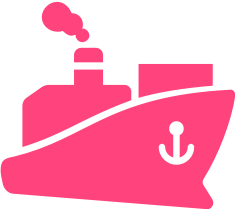Once upon a time, in a small coastal town, there lived two friends who shared the same name but had very different dreams. Cadet Vikibaba aspired to one day become the Captain of a great ship, while Trader Vikibaba dreamed of mastering the world of the financial markets. Though their paths seemed different, their journeys had more in common than either of them knew.
The Beginning: A Glimpse into the Future
One bright morning, Cadet Vikibaba was led into the wheelhouse of a modern ship for the first time. His eyes widened in awe as he gazed at the dazzling array of screens, radars, and instruments flashing and beeping. The room buzzed with energy, and for a moment, it felt as if he had stepped into the future. He was mesmerized. But soon, the awe turned to doubt. “How can I ever understand all this?” he thought. The buttons, levers, and charts all seemed too complex, and for a fleeting second, he felt an overwhelming urge to give up.
At the same time, in another part of the world, Trader Vikibaba sat at his desk for the first time, staring at a broker’s terminal. The market screens were alive with numbers, graphs, and tickers, constantly changing in real time. The chaos of the flashing reds and greens on the screen left him utterly confused. The financial jargon was like a foreign language. “How do people even make sense of this?” he wondered. Just like his friend in the ship’s wheelhouse, he was on the verge of giving up.
Words of Wisdom: The Captain and The Coach
Before Cadet Vikibaba could voice his frustration, the ship’s Captain placed a hand on his shoulder and said, “Look, son. You will become a Captain one day, no doubt about it. But to become a Master of the ship, you must first know every nut and bolt that holds it together. Master the basics, understand every part of the ship, and then, you’ll be ready to command.”
Meanwhile, on the other side of the world, Trader Vikibaba received a call from his trading coach. “Anyone can become a trader,” the coach said, “but to become a consistent trader, you must first know the basics of the market and trading. The money will follow, but the journey starts with mastering the fundamentals.”
These words echoed in both Vikibabas’ minds. Each understood that greatness was not an overnight achievement. It was built, piece by piece, by mastering the fundamentals.
The Journey Begins: Learning the Basics
Both Vikibabas started their journeys the same way—by diving deep into the basics. Cadet Vikibaba began learning the anatomy of the ship. He studied the engine room, the navigation systems, the wind charts, and the routes. Every day, he asked questions, took notes, and observed the ship’s operations with unwavering dedication.
On the other hand, Trader Vikibaba immersed himself in market fundamentals. He learned about stocks, options, trends, and risk management. He studied charts, technical indicators, and economic factors that influenced the market. Just like the Captain had said, it was not about getting rich quickly, but about mastering the elements.
Both knew that the journey was long, but neither was attached to the end goal. They simply focused on learning, taking one step at a time. Slowly, but surely, they began to understand their respective worlds.
The Power of Journaling: Reflecting on the Journey
As time passed, both Vikibabas began keeping journals.
Cadet Vikibaba would jot down his daily observations about the ship’s behavior—how it responded to rough seas, how different wind speeds affected navigation, and the way the crew worked together to handle emergencies. Each day, he became a little more confident, a little more capable. When mistakes were made, he noted them, studied them, and improved without complaint. He worked with the crew at the same time he stood aloof and observed. Cadet Vikibaba soon began to notice patterns in the behavior of the ship’s crew and their preparations. The atmosphere on board was different during departures, when the crew moved with a sense of anticipation and focus, and it shifted again during arrivals, when there was a calm but controlled urgency to dock safely. During storms, he observed the heightened alertness and seamless coordination, as if the crew were performing a well-rehearsed dance against the chaos of nature. In moments of emergency, their actions were swift, precise, and disciplined, every crew member knowing their role without hesitation. These patterns, Vikibaba realized, were not random but emerged from the crew’s experience and training, allowing them to navigate through any situation with confidence and skill.
He understood the wisdom passed down by seasoned sailors: “You can’t control the wind or the sea, but you can always adjust your sails.” This insight taught him that while external forces—whether in the market or at sea—are uncontrollable, mastering the ability to adapt is where true skill lies.
Trader Vikibaba took a methodical approach to his trading journey, maintaining a meticulous trading journal that documented every trade, market observation, and outcome in detail. When a trade didn’t perform as expected, he never succumbed to frustration or blame the market. Instead, he approached it with a learning mindset, dissecting the reasons for the misstep and extracting valuable lessons. As time passed, Vikibaba’s keen observation allowed him to identify recurring market patterns—some were cyclical, following predictable phases, while others appeared more random or distinctive. He began to understand that market behavior was not entirely chaotic but often driven by the same underlying forces: fear and greed, the twin emotions that consistently swayed the crowd. Recognising these patterns enabled him to anticipate market movements with increasing accuracy, turning challenges into opportunities.
Both Vikibabas became their own coaches, always striving to understand the intricacies of their respective worlds.
A Respect for Their Craft: The Sea and the Market
As the months turned into years, Cadet Vikibaba developed a deep respect for the sea. He learned that the ocean was unpredictable, and going against its will could lead to disaster. He understood the wisdom passed down by seasoned sailors: “You can’t control the wind or the sea, but you can always adjust your sails.” This insight taught him that while external forces—whether in the market or at sea—are uncontrollable, mastering the ability to adapt is where true skill lies.
Similarly, Trader Vikibaba developed a deep respect for the markets. He realized that the market, much like the sea, has its own unpredictable rhythm. Attempting to control or predict every move was futile. Instead, he focused on understanding its patterns and behaviors, learning to navigate them with precision and patience. He mastered the art of managing risk, knowing that survival in the market was key. Rather than chasing profits, his priority was to remain in the market, adapting to its ebb and flow, ensuring that he could weather any storm and capitalize when conditions were favorable.
Both men understood that risk was always present, lurking in the background, waiting to strike if not managed properly. They learned that psychology played a crucial role in their success. For Cadet Vikibaba, it was the discipline to stay calm in a storm, and for Trader Vikibaba, it was the ability to control his emotions and remain rational when others were panicking.
The Mind: The Greatest Enemy and Ally
Trader Vikibaba came to a powerful realization: successful trading is 30% technical and 70% psychological. The mind, if untrained, was the greatest enemy of a trader. But if trained properly, it could become his greatest asset. He worked tirelessly to master his own emotions—greed, fear, impatience—and in doing so, he became a better trader.
Similarly, Cadet Vikibaba honed his mental fortitude. The sea could be harsh and unforgiving, but he knew that panic never solved anything. By maintaining his composure, he guided his crew through tough storms and treacherous waters.
A Steady Climb: Becoming Master and Consistent
As the years passed, both Vikibabas progressed steadily toward their goals. They knew they weren’t chasing a single destination, but rather, they were constantly becoming. The lessons they learned in their journeys applied not just to their professions, but to life itself.
Cadet Vikibaba eventually stood at the helm of a great ship, not just as a captain, but as a master of the sea. He had learned every aspect of his vessel, from the smallest bolt to the most complex navigation system. He was not just steering the ship—he was in harmony with it.
Trader Vikibaba, too, had evolved. He had become a consistent trader, able to read the market’s patterns and adapt his strategies. He wasn’t chasing profits; he was in sync with the market’s flow, making decisions with calm precision and confidence.
Gratitude and Reflection: The Final Chapter
Years later, both Vikibabas found themselves sitting side by side on the sun-drenched shores of the Caribbean, the soft crash of waves before them. Cadet Vikibaba, now a seasoned ship Captain, gazed out at the vast ocean that once seemed so overwhelming, its mysteries now familiar yet still revered. Beside him, Trader Vikibaba, the master of the markets, leaned back on the golden sand, his eyes tracing the horizon as the sun dipped low, casting a warm glow over the water. A cigar in hand, both men reflected on their long, parallel journeys—one navigating the seas, the other the markets. They sat in quiet contemplation, filled with gratitude for the lessons learned, their challenges conquered, and the wisdom gained along the way..
They were no longer just a captain and a trader; they had become true masters of their worlds. Their journeys had taught them that the pursuit of mastery was never about reaching a final destination, but about the continuous evolution of self. The struggles, the triumphs, the setbacks—they were all part of the path that had shaped them. As they sat together, gazing at the endless horizon, they smiled, not with pride or ego, but with a deep, unspoken gratitude. They understood that life had given them not just the opportunity to succeed, but the gift to grow, learn, and transform with each passing moment. The fulfillment wasn’t in the titles they had earned, but in the profound wisdom that had come from the journey itself.
As the waves gently lapped at the shore, they heard a faint but distinct voice echo in the wind: “Not JUST A CAPTAIN, BUT A MASTER, and A CONSISTENT TRADER.”
They shared a silent nod, their hearts full of gratitude, and looked out into the horizon—still striving, still learning, but forever content in the present moment.
And thus, their story continued, not as an ending, but as a beautiful journey of becoming, one step at a time.
This story of two Vikibabas is a testament to the timeless truth that success is not a destination, but a journey of constant learning, growth, and respect for the world around us.

